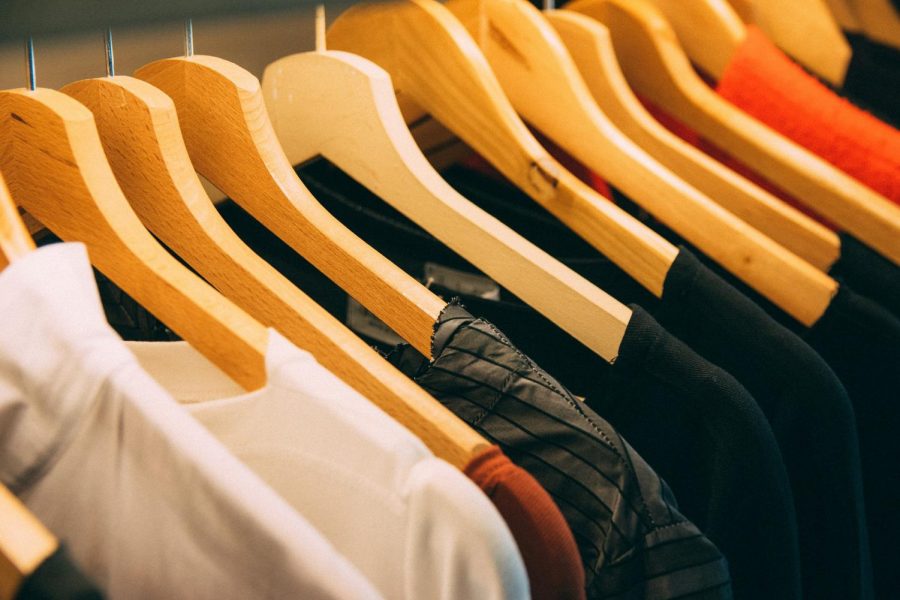Opinion: Women shouldn’t be stereotyped based on what they wear
April 10, 2018
Waking up every morning and basing your wardrobe choice on how you might look to others is something that shouldn’t need thought.
Women should feel free to wear the clothes they choose without being stereotyped or ridiculed. The freedom of fashion is one that everyone in the United States has and it also lets women be unique and show their true fashion sense.
From the 1800s to 2000s many walls were demolished by women as far the world of fashion goes. There was a time when the only thing in a women’s wardrobe were countless amounts of dresses. From the 1800s to the early 20th century, women were being stereotyped at this time as just stay-at-home mothers. They would’ve been shamed for wearing pants or anything that the average “male” would wear. Though in the 1820s, Fanny Wright pushed away from the generic women stereotype and became the first women to wear pants, according to LoveToKnow Magazine.
This move outside the standard helped to push away the stereotypes of women and their wardrobe. In the roaring 20s, many women were rebellious and began to wear pants out more, pioneering their way towards a more fashionable future. They changed the fashion industry and broke through barriers that would revolutionize how women would wear clothes.
It took nearly 100 years to change the norm of women’s fashion. Shouldn’t it be something of the past? Stereotyping is a hard idea to change since it’s part of the psychology of the brain, but different types of clothes have begun to mean different things to people of different backgrounds. It is an issue that plagues everyone from your own daughter to your 90-year-old grandmother.
Many Muslim women are stereotyped based on their choice to wear a hijab. According to Emirates Magazine, one of the most common ridicules given to them is that they are forced to cover themselves, which is not true. Women who are Muslim wear hijab as a personal and spiritual choice. Another example is that they are hushed and extremely traditional to their religion, according to Emirates Magazine. Though this stereotype is also false in that Muslim women who wear the hijab are just like any other women.
Even millennial women, who are known for the fast fashion trends throughout the years are being stereotyped.
Jennifer Kendt, a customer who attended an event called “Girls Night Out,” mentioned that women are being labeled because of how they wear clothes.
“People look at women in typical style today and might stereotype them as being slutty,” she said.
Older women are stereotyped in buying younger looking clothes.
“Clothing is what the people want to buy,” says Dr. Lynn Boorady a fashion professor at SUNY Buffalo State.
If the clothing offered to women of different sizes or ages is based on what the people want to see. But in some cases, the fashion industry doesn’t do justice to meeting the needs of different sizes.
“It is different to dress from a size 26 to size 16,” Kendt said.
People of plus sizes are generally at a loss to find clothes that fit and work with their body shapes appropriately. By that said the clothes that are put out by stores shape the stereotypes that people label women with.
The fashion industry has silently been adding fuel to these stereotypes and by that have only made it a larger issue. If brands were able to work with everyday women and meet their needs, this would be a different conversation. What is the real solution to stereotyping? Is it the job the brand or perhaps the consumer to change this mentality within a society? Or is it a part of how women see themselves in the grand scheme of things? The answer is likely to be all of the above.
Fashion is generally based on what brands and designers feel their customers want. In some cases, brands specify clothes that look like a general stereotype. Regardless of the fashion trends, people do still need clothes. Industries create these stereotypes and add to the chaos of people already labeling others in a society.
Fashion companies should brand more appropriately to the needs of the everyday women. By doing this, women would be able to buy clothes that add practicality and functionality to their closet.
Consumers and society as a whole also play a big role in the stereotyping of women. It’s society who put these labels on women. But the clothes offered in some cases are what women choose to wear.
“People go and buy clothes because they are fashionable, Borrady said.
Society shouldn’t label women because they dress a specific way. Everyone is different in their own way, but that is what makes this world so unique. Fashion is unique, it represents who someone is – that is something that should be commended, not criticized.





Alina M Duvall • Sep 8, 2021 at 8:40 am
Amazing information, very much relatable.
https://bit.ly/3pOyyad
Maria foster • Sep 7, 2021 at 10:46 am
They don’t wear for others, they for themselves so they have right to wear that make them stylish and feel comfortable but they have to take care about social eyes.
https://www.topsandbottomsusa.com
Sophia Moller • Sep 7, 2021 at 10:45 am
Yes, You are right but they should wear the clothes which make them feel.